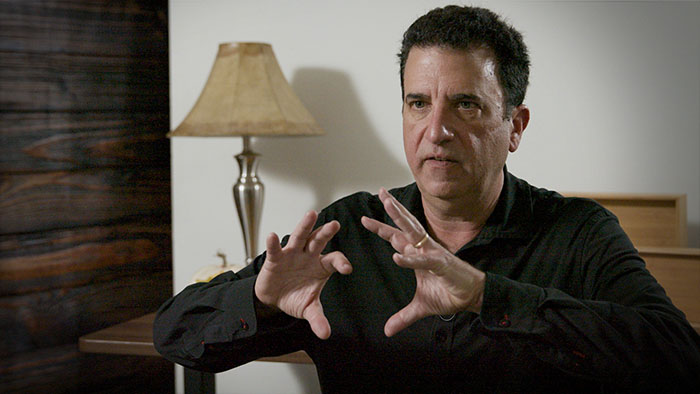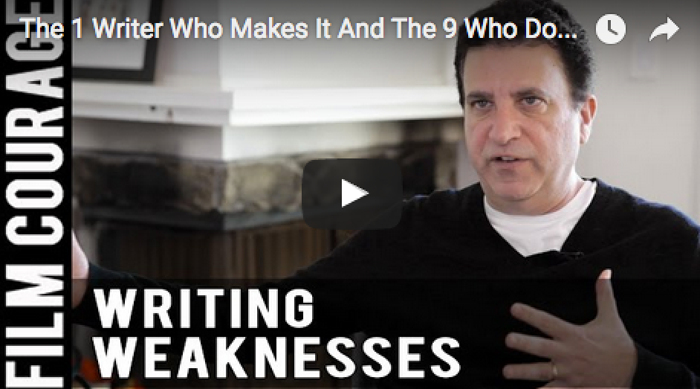Film Courage: We took a break for a moment and off-camera you said something about character and dialogue and how you help your students and how in some ways they are the same thing?
Corey Mandell, Screenwriter/Instructor: I talked about this sort of more globally in the creative integration video (and people can go back) that I did before for you guys a couple of years ago. I’ll get a bit more specific. There are a little more specifics on the intuitive training and there will be a practical test that people can take at the end to see where they are at.
When I work with someone especially someone who needs to improve on their characters and dialogue and I’m going to short-stroke this a little bit (because you can go back to the creative integration video for a full explanation of the conceptual and the intuitive) but often the conceptual brain is very focused on what other people think, fear of rejection, wanting to be good and it’s controlling. And that can be helpful. There are certainly when we are doing stories and we want to design stories that are really engaging to other people we want to be aware of how people are seeing our scripts. The conceptual brain is a really important part.
The intuitive brain is where our authenticity comes from (our emotional authenticity) and the intuitive brain doesn’t have a past, present or future, it just has a now.
The first part when I am working to get them better at characters or dialogue…(Watch the video interview on Youtube here).
STUDY WITH COREY MANDELL
Coreymandell.net/professional-screenwriting-and-television-writing
CONNECT WITH COREY MANDELL
Coreymandell.net
Twitter
MORE VIDEOS WITH COREY MANDELL
https://bit.ly/2v8SPgy
Like this video? Please subscribe to our Youtube channel. Or love this video and want more? You can show additional support via our Youtube sponsor tab or through Patreon.
Advertisement – contains affiliate links:




























